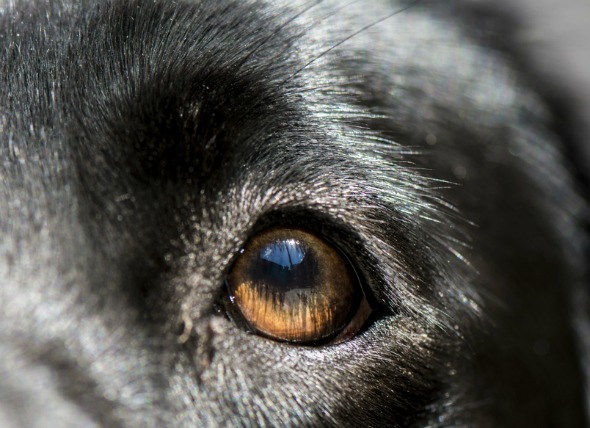

Blepharitis refers to a condition that involves inflammation of the outer skin and middle (muscle, connective tissue, and glands) portions of the eyelids. This condition is also usually seen with the secondary inflammation of the inner surface of the eyelid (palpebral conjunctiva).
Congenital (born with)
Allergic
Bacterial
Neoplastic
Other
You will need to give your veterinarian a thorough history of the dog’s health, including the onset and nature of the symptoms and possible incidents that might have precipitated this condition. He or she will then perform a complete physical examination as well as a biochemistry profile, urinalysis, and complete blood count. Although their results are typically non-specific, they may reveal valuable information if a systemic disease is present. In particular, an eye exam may help determine the severity of the condition and the degree of involvement of the eye.
Your veterinarian may collect sample from the affected ocular area (or surrounding skin) to identify the causative microorganism, if present. These samples can be cultured to grow the bacteria, parasites, or fungus. A Schirmer tear test is also frequently conducted to determine whether the eye produces enough tears to keep it moist or not. And if a food allergy is suspected to be the cause, further testing may be required to identify the food allergen.
The course of treatment will depend ultimately on the underlying cause of the disease. In cases of self-trauma, for example, your veterinarian may recommend the use of an Elizabethan collar (cone). More severe cases, on the other hand, may require medication and/or surgery. And in cases of food allergy, the food allergen must be identified and eliminated from the diet.
The overall prognosis of dogs with blepharitis depends on the underlying cause. Some dogs respond well, whereas in others, a “cure” is not possible. If antibiotics are prescribed, you should notice an improvement in your dog within three weeks. However, consult your veterinarian before you stop cease providing medication to your dog. This may help prevent an unnecessary relapse. In addition, follow the veterinarian's therapeutic and diet diet plan accordingly.
 Enlarged Liver in Dogs
Hepatomegaly in Dogs
The term hepatomegaly is use
Enlarged Liver in Dogs
Hepatomegaly in Dogs
The term hepatomegaly is use
 Abnormal Development of the Elbow in Dogs
Elbow Dysplasia in Dogs
Elbow dysplasia is a cond
Abnormal Development of the Elbow in Dogs
Elbow Dysplasia in Dogs
Elbow dysplasia is a cond
 Increased Appetite in Dogs
Polyphagia in Dogs
When a dog increases its food
Increased Appetite in Dogs
Polyphagia in Dogs
When a dog increases its food
 Excess Thyroid Hormone in Dogs
Hyperthyroidism in Dogs
Hyperthyroidism is a dise
Excess Thyroid Hormone in Dogs
Hyperthyroidism in Dogs
Hyperthyroidism is a dise
 Mass Protrusion from the Vaginal Area in Dogs
Vaginal Hyperplasia and Prolapse in Dogs
Vaginal
Mass Protrusion from the Vaginal Area in Dogs
Vaginal Hyperplasia and Prolapse in Dogs
Vaginal
Copyright © 2005-2016 Pet Information All Rights Reserved
Contact us: www162date@outlook.com